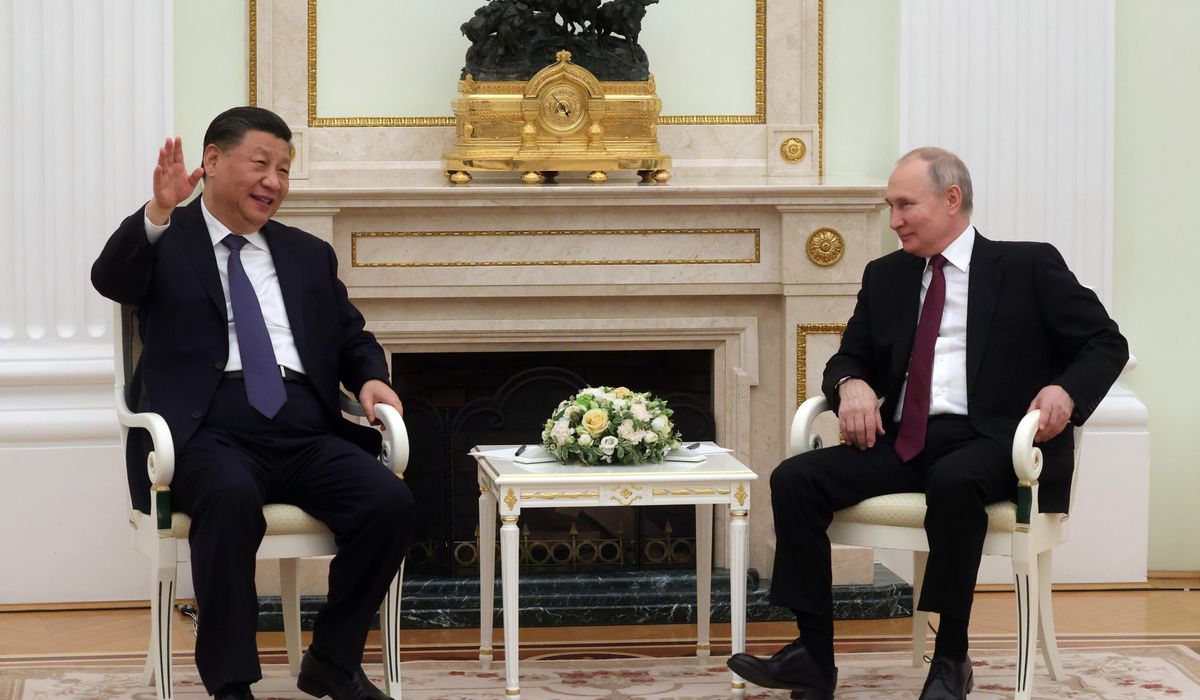


OPINION:
American statecraft didn’t keep Vladimir Putin from invading Ukraine. It didn’t stop Xi Jinping from building an archipelago of man-made islands in disputed regions of the South China Sea, nor did it deter him from firing missiles over Taiwan last summer.
But an adept American foreign policy should have been able to deter all these events. Going forward, getting this right is critical and requires a rethink of U.S. statecraft and strengthening its tools – clear-eyed diplomacy, active economic policies, and a strong military.
Instead, our leaders fall back on a reactive foreign policy based on the vague notion of “integrated deterrence,” which the Executive Branch describes as the planning, coordination and operation of all government agencies together, along with allies.
In practice, this rather nebulous concept has been used as a cover to avoid doing what is necessary: making larger investments in our military and politically risky reforms in our institutions to better integrate military, diplomatic and economic statecraft. As a result, the root causes of failed American statecraft linger.
Integrated deterrence talks up coordination among agencies but relies disproportionately on diplomatic maneuvers. And more than diplomacy is needed to check implacable foes like China and Russia. A healthy dose of hard power and economic heft is required, too. This is especially true now that China boasts the world’s largest modernized military and has spread its economic tentacles across the globe through its trillion-dollar investment in Mr. Xi’s Belt and Road initiative.
The weakness of U.S. statecraft has been evident for quite some time, but little has been done to arrest it, due largely to a lack of imagination and misplaced priorities. We desperately need a new framework for rebuilding American centers of power, restructuring institutions, mentoring the leaders needed and rolling back the caustic influences threatening our nation.
Our principal adversaries – China and Russia – are not 10 feet tall but they represent a challenge unlike any the nation has ever confronted. A promising new framework that addresses both foes and takes the initiative is called Naval Statecraft.
Emphasizing naval and maritime power, it leverages America’s advantages in the maritime domain, to present our adversaries’ strategic dilemmas, while demonstrating the supremacy of American capitalism and governance in delivering prosperity for the most people.
A maritime presence can yield tremendous economic benefits. Djibouti’s economic rise in the early 2000s was sparked when U.S. naval forces arrived to carry the fight to Al Qaeda after the Sept. 11 terrorist attacks. The increased maritime security presence enabled the deepwater port of Doreleh to become a regional commercial hub.
Sadly, U.S. leaders failed to pair the naval presence with economic and diplomatic efforts. Years later, Beijing filled that vacuum, and Djibouti has fallen deeper into China’s orbit.
Another example of Naval Statecraft came in 2020. Operating in international waters, a Malaysian-chartered oil survey ship, the West Capella, was subjected to Chinese harassment for months. The U.S. kept a measured but sustained naval presence near the ship, while diplomats rallied international support in defense of Malaysia’s economic rights. Eventually, China ceased harassing the ship, and the region was united in its antipathy toward China’s behavior. Unfortunately, that success was more luck than planning.
Naval Statecraft embraces the fact that most nations must balance economic and security interests, and thereby integrate the two together in comprehensive policies. But this causes problems for a U.S. government that typically approaches economics and security as distinct lines of effort.
We have entered a new Cold War, with China as our principal adversary. If we are to prevail, we must take military, economic and diplomatic actions backed by all institutions of American national power working together for common strategic objectives.
Naval Statecraft offers a framework for successfully competing with adversaries in peacetime, while deterring their worst behaviors. If we fail to recognize that the geo-strategic tectonic plates have shifted under our feet, we risk sleepwalking into a war more costly than anything our nation’s history.
——————
Brent D. Sadler is author of the forthcoming book “U.S. Naval Power in the 21st Century.” The 26-year veteran nuclear-submarine and foreign-area officer is currently a senior research fellow at the Heritage Foundation covering naval warfare and advanced technologies.
